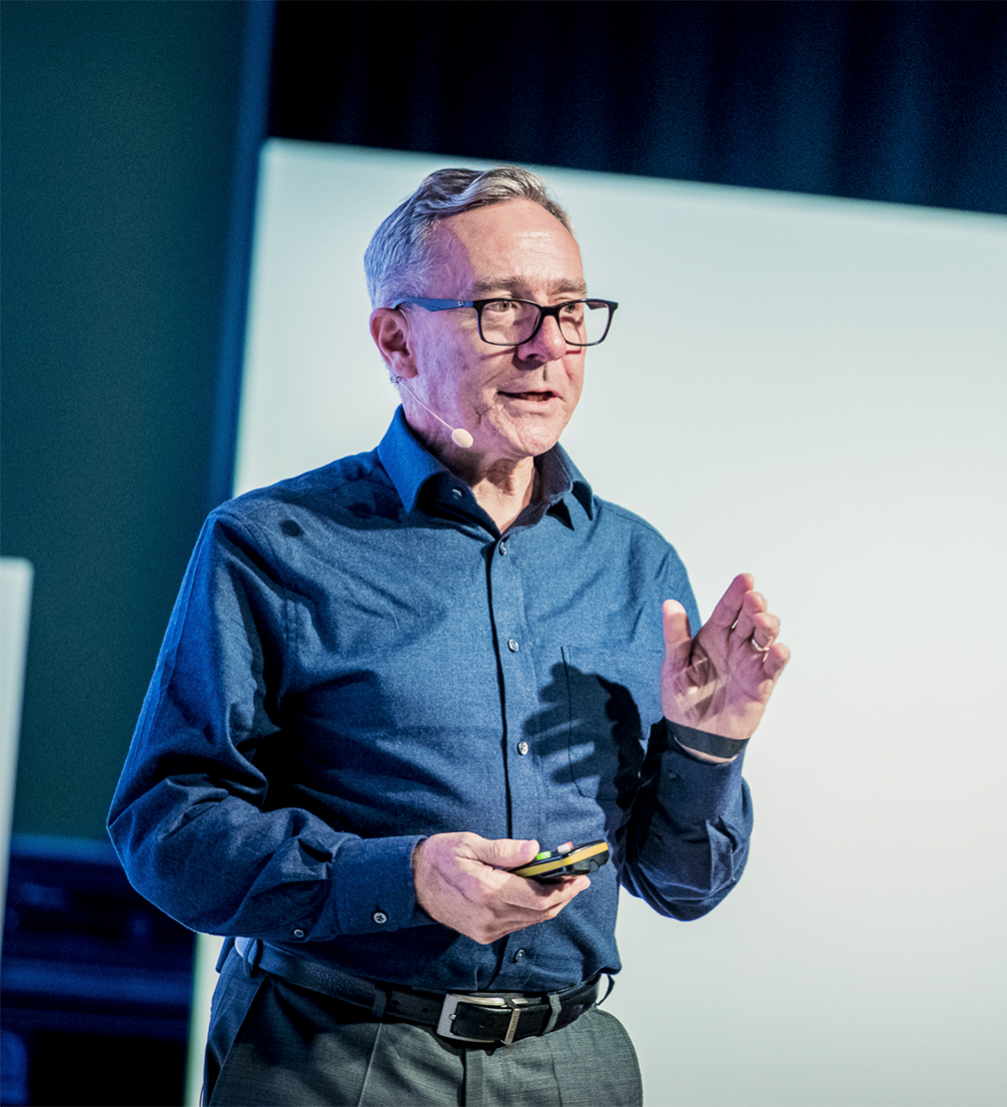
This autumn, Riga was enhanced by a new marketing and advertising event — the first Baltic Brand Forum. It was held on the 3rd of October, and one of the forum’s special guests was Les Binet, Group Head of Effectiveness at adam&eveDDB, an award-winning London-based communications agency. He has worked there for more than thirty years, which is unusual in the industry.
Binet has used his vast experience in advertising to write several books on marketing effectiveness. Two of them, Effectiveness in Context: A Manual for Brand Building and How Not to Plan: 66 Ways to Screw it Up, came out last year. At the forum, Binet shared ten concise recommendations for how to build a sustainable brand using examples from his books.
Why is it that you have worked in one agency for so many years?
I’m a long-term person and I value consistency. This means that I prefer long-term relationships, friendships, and believe in projects that take time. My wife would say that I’m just not that good with change, but I believe in the continuity of building things up. It’s a funny coincidence that a lot of what I write in my books is also about value, longevity, and investing in brands.
What is the most exciting thing about your work?
I get excited when I dig into data and find things that lead to discoveries. I’m a bit geeky in this way. It’s great to be aware of the fact that I can see how things connect while I am making and supporting great advertising. I could work in a bank, or in finance, but I have a job where I don’t only see spreadsheets, graphics and numbers, but also great ads being made. The other exciting part is participating in big conferences and speaking in front of people talking about things that they seem to find interesting.
I have to get involved at various points in the process in my daily work. One thing I do is generate PR for the agency, which helps bring in new business. After that I get involved in the pitches. Then I might take part in setting a budget and help planners form a strategy by reminding them of the general principles and empirical evidence that shows what works in a particular category and what doesn’t. Planners are very good at assuming what a brand might need, but I usually have to counter them with arguments from specific studies that show that their idea wouldn’t work. In these situations I’m like a teacher of effectiveness. After the campaign has run, I see what worked, what went wrong, or what accomplishments brought good results so that we can allocate more budget to it next year. Then I might get involved in a case study to generate more PR with more clients and start the cycle again.
How has your work changed over the decades?
There have obviously been lots of changes. When I first started working for creative and media agencies, all the work was done in one place not divided like it is today. I remember that at the time I was only the second or third person working with a computer in the building, but now everyone has one and work without computers is impossible.
Technology is changing a lot. The pace of life is faster. We are expected to respond to clients quicker. This is one of the biggest problems in the industry, in my opinion. Technology makes it much easier for clients to ask things and expect a response immediately, but sometimes there are questions that you cannot answer without doing some research. There are also things that haven’t changed — many of the principles of what is good and what works are the same, for example.
Which of the ten tips you listed in your talk are the most difficult to implement?
Since they both are related, I want to name two. The first one is aiming for fame, because almost by definition only a small number of brands can become famous. The second tip is being creative, which is part of becoming famous. Creativity is by its nature slippery and rule-breaking. I can give the advice to be creative, but how should that be implemented? Hire some creative people? How many? How can you identify who they are? How can you help them keep going with new ideas? The work that creatives come up with is really where the magic happens. Having worked in a creative agency for so long I know when an agency is doing well, when it is doing badly and when the ups are coming back again — the main difference is the creative work. If you are not coming up with that magic, then nothing else will work.
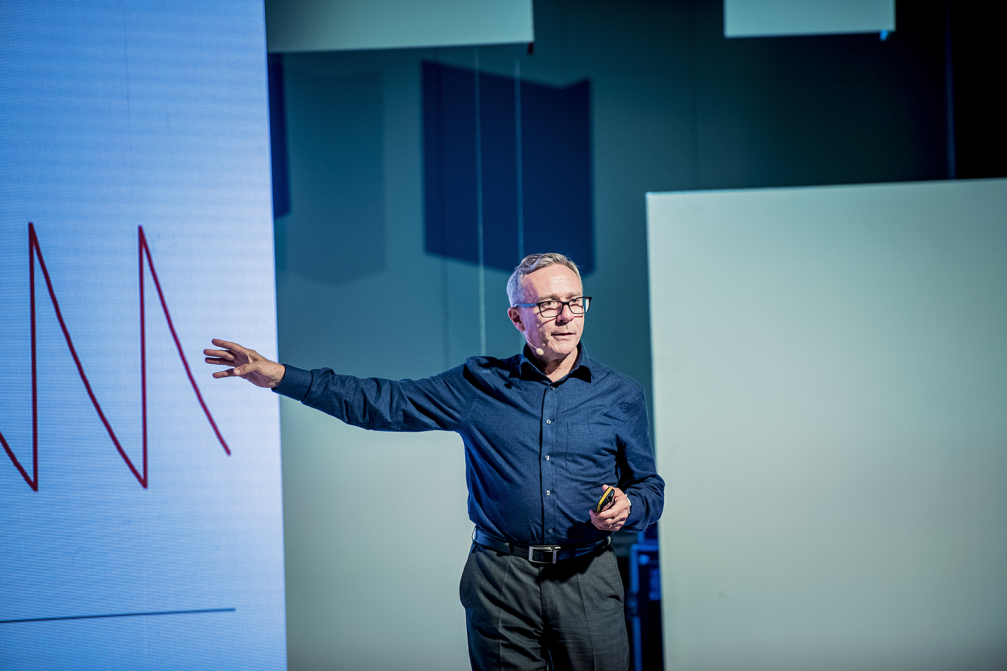
In your lecture, you also mentioned that it is important to invest in advertising reach. This question was already brought up by the audience, but I want to ask it one more time. How do you build a brand when you have no money to buy the reach?
To achieve reach, fame and all the other related things, I wouldn’t necessarily say that all brands need a huge budget. When a businessman starts a little start-up with a great product and a new way of doing things, I would advise them to focus on just getting the brand known in order to make it easy for people to buy the product and contact the company. That doesn’t necessary require a huge budget. When the brand has grown a bit, it is important to keep it growing. Is it going to be just a small brand and you’re going to be happy with the money you’re making at the moment, or are you going to keep growing further and invest some of this money? At that point the brand has to start spending money on advertising. It’s about the brand looking bigger than it actually is. If the brand has a 5% market share, it must look as if it has 6%, for instance. Besides, nowadays it is easier to just buy small amounts of advertising.
It seems to me that there are lots of brands that are only interested in doing pretty discount campaigns. How can you persuade these kinds of clients to think in the long-term?
It is not possible to build a brand’s value by selling products cheaply. It has to be a very special kind of company to make money out of doing that. There are some brands like that, but the market can’t handle too many of these. Discounting is a way to earn less and work harder. It’s much easier to make money if you go the other way and support premium pricing.
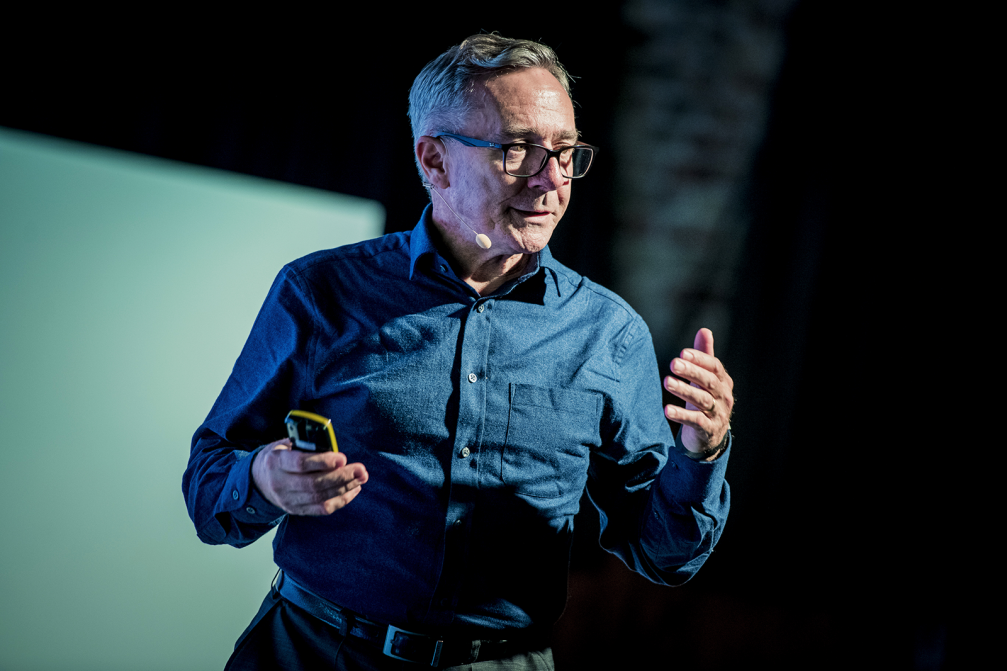
How does your work influence the creative part of advertising?
I don’t think it influences creative work directly in the sense of creatives reading my books and getting inspired. Many of them may not even be aware of my work. But I see that my job is to fight for their right to do their jobs well, because I highlight the importance of creativity, freedom, and inspiration. It is massively important, but it is not written about enough in terms of marketing effectiveness.
When good design and creativity function together, it is possible to build a massively profitable brand. Good design and creativity evoke positive emotions in people even if it’s only a simple pleasure, like, for example the feel or lovely smell of a really nice bar of soap. It appeals to the sensual, aesthetic, creative and animal nature of humans, rather than the intellectual mind. Many people think that what we do is about taking rational proposals and putting just a little bit of sugar on top, but actually it’s the sugar that sells, rather than the proposal itself.
Advertising is about helping businesses grow and achieve their goals. If you produce a campaign that is a great work of art, but doesn’t actually bring anything to the business, then it’s probably a failure.
Once I had to work with data about emotions and messages in advertisement. When my colleague and I first started to look at this we were fairly sure that we were going to discover that if you divide campaigns into those that mainly work through rational messaging and those that work through emotions, that the most effective ones would be ones that combined the two types. We thought that good campaigns needed a combination of messages and feelings, but that is actually not what we found in the data. We found that the more ads moved away from messages towards emotions, the more effective they were. The data was quite unambiguous and was literally saying «don’t tell people things, because people feel things». This discovery gave us a real shock and made us feel that almost everything we’d been doing in advertising had been wrong.
Has it happened that the creative team didn’t take your advice?
There have been several interesting cases related to bad predictions. I published a book last year, together with my colleague Sarah Carter, that is dedicated to situations when something goes wrong. For example, once a planner presented a «really cool» idea for a mobile app to me. It was for a product that is consumed in hot weather, and the idea was that the hotter the weather became, the less people had to pay for the product, and when it reached a certain temperature people would even be able to get it for free. My advice was — «for goodness’ sake, don’t do that!» They would be giving away the product at the time when people were most likely to buy it. I thought it would destroy the client’s profits and that they would literally be giving the client’s money away. The idea was carried out anyway. And it was a disaster. It ended up being a terrible and stupid mistake, because the agency didn’t care about the client’s profits — all they cared about was doing something «cool».
So is profit what’s most important after all?
If you are working at an advertising agency and you are being paid for that, then most of the time it is about the profit, because it is the client’s money. If the brand gives you two million dollars, you have a responsibility to make sure that they get their money back. If it is a charity, or if you are trying to change the world, that’s a different thing, but most advertising is about helping businesses grow and achieve their goals. If you produce a campaign that is a great work of art, but doesn’t actually bring anything to the business, then it’s probably a failure.
However, great creative work can not only help clients make more money, but also make the world a better place. We are surrounded by advertising all the time — also with shitty, annoying ads! When I sit in a station, some of the ads I see make me feel like I’m being poked with a stick! But I have also seen ads that have made me laugh out loud in the street and have made me feel a little happier that day. I think when we do our job really well, we help businesses make more money, people find the things that they want more easily, and everyone is a little bit happier.
A big thank you to Andris Rubīns and DDB Latvia for organising the interview!



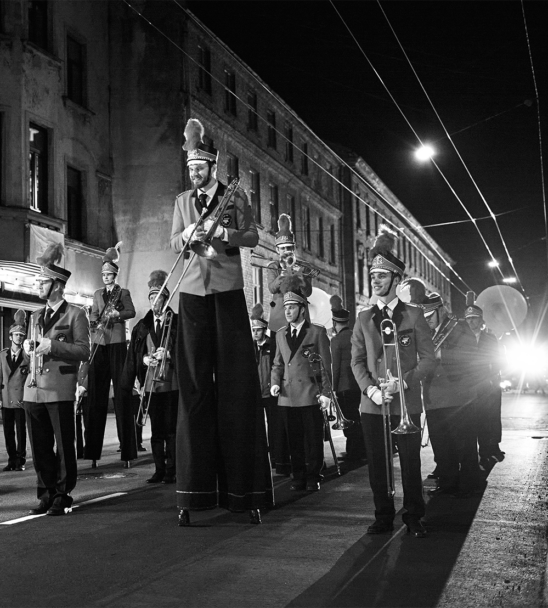

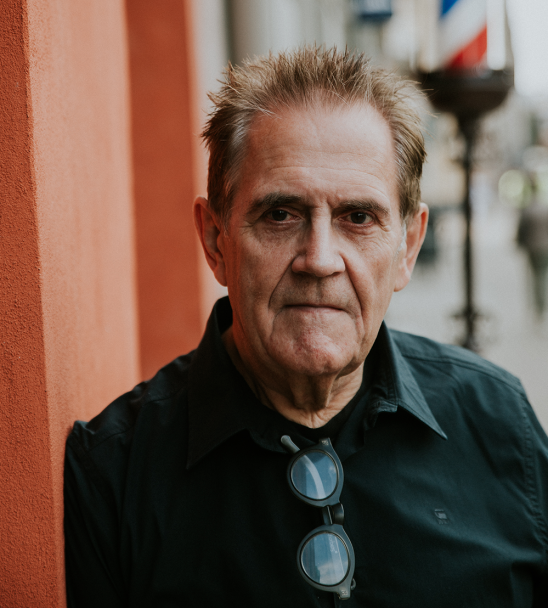
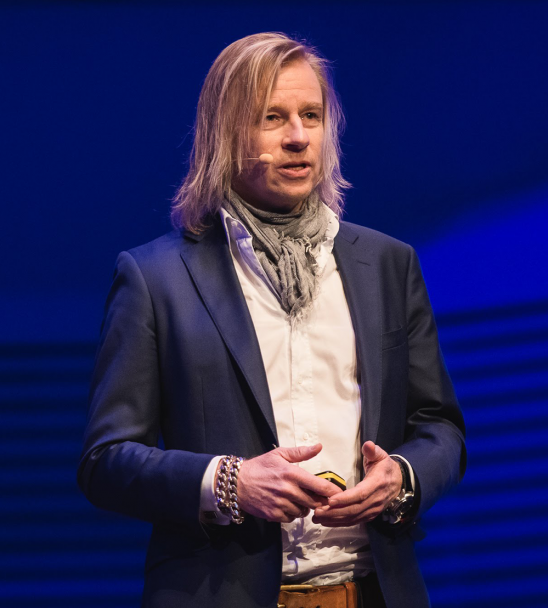
Viedokļi